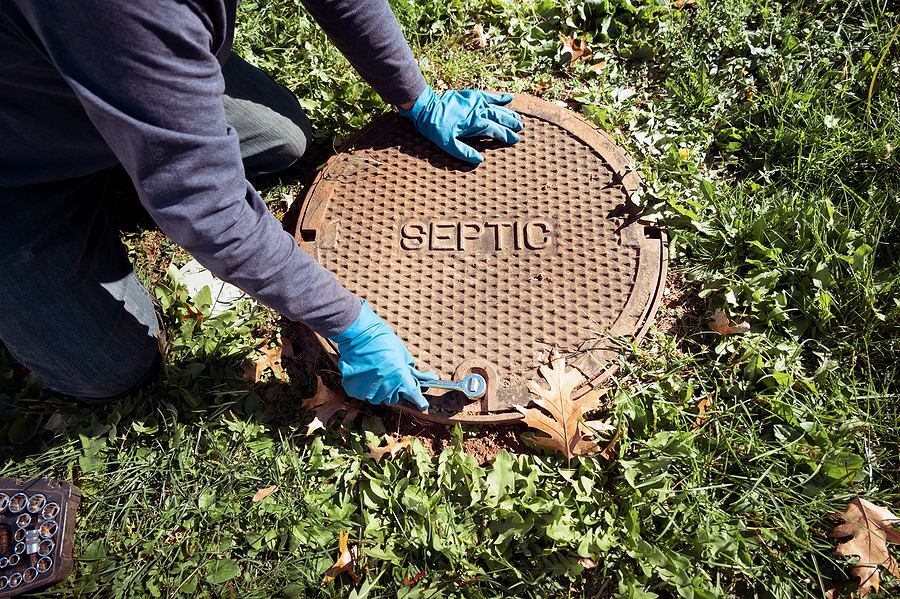WE NOT ONLY PUMP YOUR TANK - WE CLEAN IT! Up to 36 Months Financing Available
Call Septic Blue Now 813-355-9188
It's Easier Schedule Online
WE NOT ONLY PUMP YOUR TANK - WE CLEAN IT! Up to 36 Months Financing Available
Call Septic Blue Now 813-355-9188
It's Easier Schedule Online

Septic tanks are essential for maintaining a safe and clean environment in homes and communities when it comes to wastewater management. Understanding the process through which septic tanks filter wastewater is not only essential for homeowners but also for those involved in the septic industry, including septic tank pumping, repair, installation, and cleaning companies.
In this blog post, our professionals from Septic Blue will delve into the intricacies of how septic tanks efficiently filter wastewater and maintain environmental health.
The journey of wastewater treatment begins with the proper installation of a septic tank. To guarantee maximum functionality, this calls for careful planning and compliance with legal requirements. Septic tank installation companies are tasked with selecting the appropriate location, excavating the area, and installing the tank according to specifications. The basis for efficient wastewater treatment is a properly installed septic tank.
Once wastewater enters the septic tank, the magic begins. The indigenous anaerobic bacteria in the tank starts the breakdown process. Lighter wastes, like grease, float to the top of the tank and produce scum, while solid wastes sink at the bottom and form sludge. These bacteria put in a lot of effort to decompose organic matter and convert it into simpler substances.
The liquid that has been clarified—known as effluent—moves on to the next chamber for additional treatment as the wastewater breaks down. Finer particles are filtered out of the mixture here, leaving only liquid in the tank. This important process keeps drain fields from becoming clogged and shields the nearby soil from contamination. Maintaining the effectiveness of this filtration mechanism and preventing accumulation requires routine septic tank cleaning from reputable businesses.
Over time, sludge and scum accumulate in the septic tank, necessitating periodic pumping to remove these residues. Septic tank pumping companies employ specialized equipment to suction out the accumulated waste, preventing blockages and ensuring uninterrupted wastewater treatment. Frequent pumping lowers the likelihood of expensive repairs while also extending the life of the septic system.
As a property owner with an onsite wastewater system, you’ve…
Read More+Most homeowners don't think about their septic system until something…
Read More+Even with careful upkeep, septic systems can occasionally experience problems that need to be fixed right away. Septic tank repair firms are prepared to tackle a wide range of issues, including leaks, cracks, and broken parts. It is essential that these experts act quickly to stop environmental contamination and restore system operation. Ignoring the need for repairs might make problems worse and cause more widespread harm.
The ecology as a whole benefits from well-maintained septic systems, not just individual homes. Septic tanks preserve water quality in nearby ecosystems and reduce the possibility of groundwater contamination by efficiently processing wastewater. Septic systems can be made more sustainable by performing routine maintenance and servicing, which lowers the need for expensive replacements and lessens their environmental impact.
The process of filtering wastewater in septic tanks is complex and involves both mechanical and biological systems. Every phase of septic system maintenance—from pumping and installation to cleaning and repairs—is essential to preserving their effectiveness and lifespan. Homeowners and communities may ensure the correct management of wastewater and protect the environment for future generations by being aware of the complexities involved in this process and investing in professional septic company services when necessary.